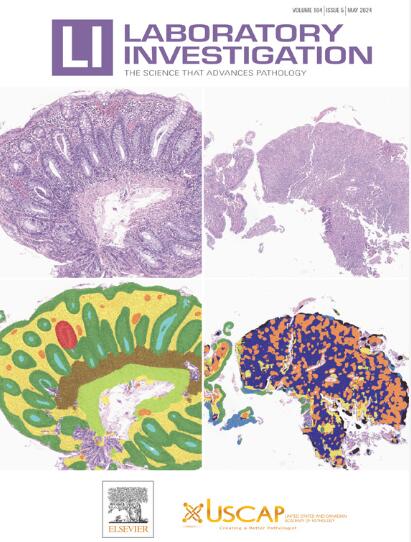Enhancing Biomarker Detection in Cancer: A Comparative Analysis of Preanalytical Reverse Transcription Enzymes for Liquid Biopsy Application
IF 5.1
2区 医学
Q1 MEDICINE, RESEARCH & EXPERIMENTAL
引用次数: 0
Abstract
Circulating tumor cells and liquid biopsy-based biomarkers might one day play a crucial role in the treatment decision process for patients of several cancer entities. However, clinical studies on liquid biopsy approaches revealed distinct detection rates and thus, different risk scoring for patients. This study delves into the comparison of 2 utilized reverse transcription enzymes, namely, SuperScript IV VILO (VILO) and Sensiscript (SS), aiming to understand their impact on biomarker detection rates. Prostate cancer cell lines were used to assess detection limits, followed by an investigation of biomarker status in clinical liquid biopsy samples of distinct tumor entities. Our findings highlight the superior reverse transcription efficacy of VILO over SS, commonly used in studies employing the AdnaTest platform. The enhanced efficacy of VILO results in a significantly higher number of patients positive for biomarkers. Clinically, the use of a less-sensitive enzyme system may lead to the misclassification of genuinely biomarker-positive patients, potentially altering their prognosis due to inadequate clinical monitoring or inappropriate treatment strategies.
加强癌症生物标记物检测:用于液体活检的分析前逆转录酶的比较分析。
循环肿瘤细胞和基于液体活检的生物标记物有一天可能会在多种癌症患者的治疗决策过程中发挥关键作用。然而,有关液体活检方法的临床研究显示,它们的检出率不同,因此对患者的风险评分也不同。本研究深入比较了两种常用的反转录(RT)酶,即 SuperScript™ IV VILO™ (VILO) 和 Sensiscript (SS),旨在了解它们对生物标记物检测率的影响。我们使用前列腺癌细胞系来评估检测限,然后对不同肿瘤实体的临床液体活检样本中的生物标记物状态进行调查。我们的研究结果表明,VILO 的反转录功效优于 AdnaTest 平台研究中常用的 SS。VILO 的功效增强后,生物标记物呈阳性的患者人数明显增加。在临床上,使用灵敏度较低的酶系统可能会导致真正的生物标记物阳性患者被误诊,从而可能因临床监测不足或治疗策略不当而改变患者的预后。
本文章由计算机程序翻译,如有差异,请以英文原文为准。
求助全文
约1分钟内获得全文
求助全文
来源期刊

Laboratory Investigation
医学-病理学
CiteScore
8.30
自引率
0.00%
发文量
125
审稿时长
2 months
期刊介绍:
Laboratory Investigation is an international journal owned by the United States and Canadian Academy of Pathology. Laboratory Investigation offers prompt publication of high-quality original research in all biomedical disciplines relating to the understanding of human disease and the application of new methods to the diagnosis of disease. Both human and experimental studies are welcome.
 求助内容:
求助内容: 应助结果提醒方式:
应助结果提醒方式:


